Ways to Connect with Poems & Celebrate National Poetry Month this April
Posted on April 5, 2023 at 6:00 am
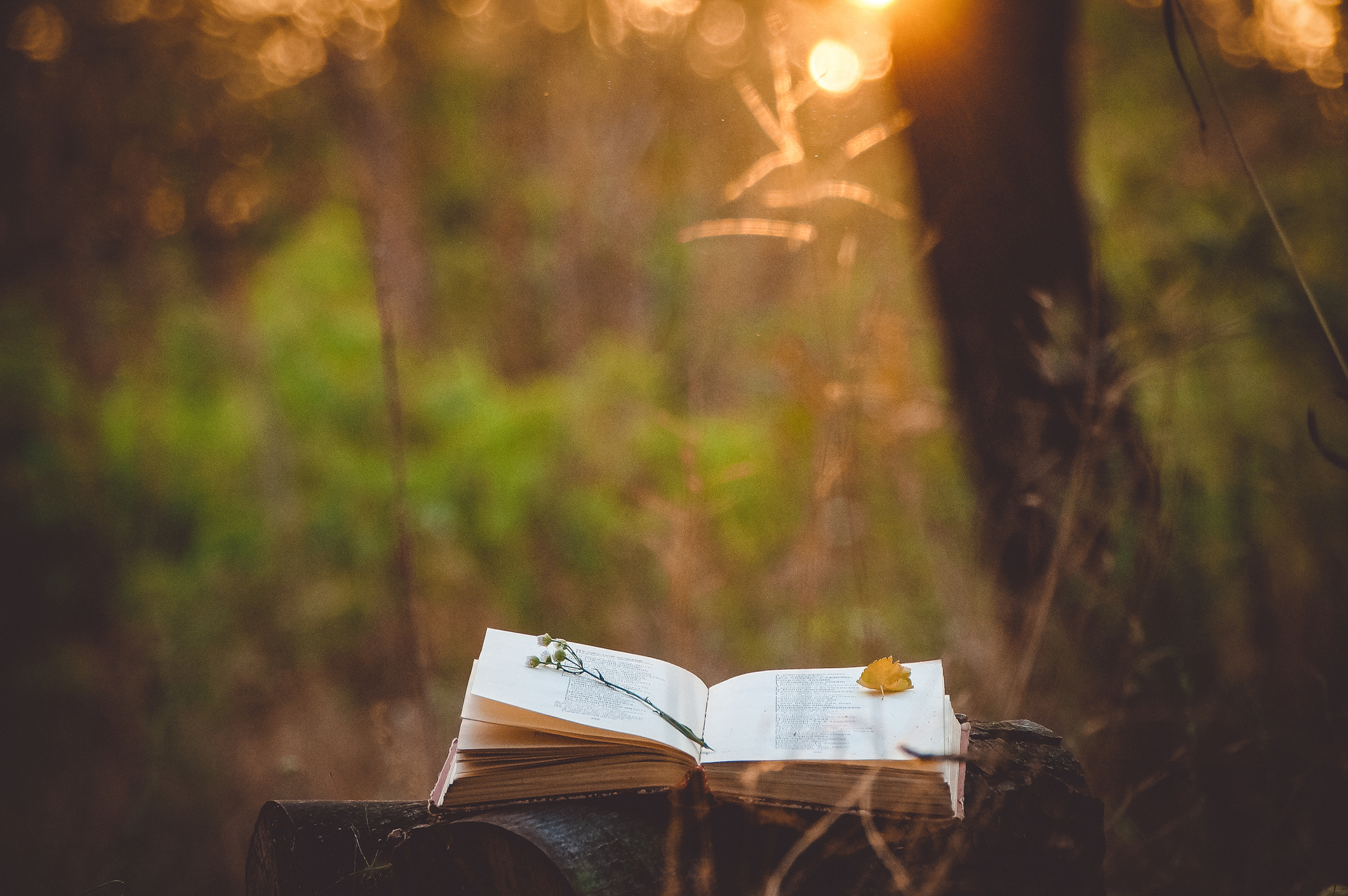
By Melissa Rhoades
Since 1996, April has been designated as National Poetry Month to recognize and honor this long-lived and varied artform.
Poems can be emotional expressions, political statements, a spiritual practice, a way to convey narrative, a whimsical play with language, and many other things. Likewise, poems can fulfill specific rhythms, sounds, syllable counts, or other formal attributes—but they don’t have to. Free-verse poetry contains no preset pattern, and prose poems are literally written in prose.
Emily Dickinson once declared that poetry can only be defined by how it affects the reader or listener:
If I read a book [and] it makes my whole body so cold no fire can ever warm me, I know that is poetry. If I feel physically as if the top of my head were taken off, I know that is poetry. These are the only way [sic] I know …
This definition implies that different things will be poetry to different people, an idea some may find frustrating or perplexing. And poetry’s enigmatic nature is one of its strengths!
Poetry remains alive in American culture today through a variety of formats, venues, and functions. It’s found in everything from lullabies and nursery rhymes to hit song lyrics, improvisational rap, poetry slams, academic journals, bookshop readings, and grand, formal events like presidential inaugurations.
You too can explore, create, and enjoy poetry, in whatever forms appeal to you.
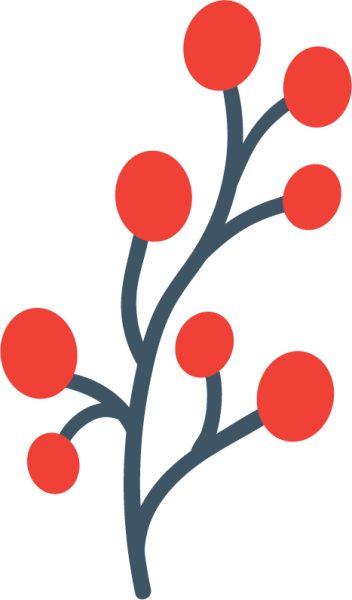
Ways to Celebrate Poetry
Organized by the Academy of American Poets, National Poetry Month is said to be the “largest literary celebration in the world, with tens of millions of readers, students, K–12 teachers, librarians, booksellers, literary events curators, publishers, families, and—of course—poets, marking poetry’s important place in our lives.”
Highlights from the Academy’s list of “30 Ways to Celebrate National Poetry Month” include:
- Sign up for Poem-a-Day to receive a contemporary poem in your inbox each morning.
- Subscribe to the Poem-a-Day Podcast to hear authors read their poem-a-day aloud.
- Make a poetry playlist with free recorded poems.
- Record yourself reading a poem and share it online using the hashtag #NationalPoetryMonth.
- Read an adult, teen, or children’s poetry book from the library (in print, eBook, or audiobook formats).
- Begin a meeting or class by reading a poem aloud to the group.
- Encourage students in grades 5–12 to participate in the Dear Poet Project.
- Organize a poetry reading, open mic, or poetry slam.
- Sign up for a poetry class or workshop.
- Take a walk and write a poem outside.
Read on to discover great poetry books—plus tips on how to write poetry and how to get published.
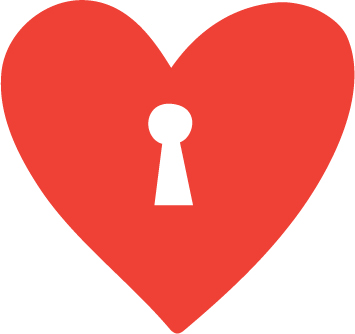
Ancient to Modern Classics
It’s impossible to sufficiently represent the breadth of poetry that has developed across different languages and cultures. Nevertheless, the following classics offer a glimpse of poetry’s diversity from ancient times to the 20th century.
Only fragments survive from what scholars presume was the prolific work of Greek poet Sappho, who lived circa 625–570 B.C. Personal and emotional in tone, her short, lyric verses in If Not, Winter: Fragments of Sappho contrast starkly with older Greek poetry like Homer’s epic narrative The Odyssey (digital).
Seamus Heaney’s translation of Beowulf remains my favorite ancient epic narrative poem. Complete with knights in armor and monsters terrorizing banquet halls, this poem was composed in Anglo-Saxon (Old English) sometime between the 7th and 10th century A.D. Its form is based on alliteration. Later European epics include Alighieri Dante’s Inferno and John Milton’s Paradise Lost.
Jalāl al-Dīn Muḥammad Rūmī (often simply called Rumi) is famous for verse that joyfully celebrates spiritual love. Though he wrote in 13th-century Central Asia, Rumi’s poems transcend that culture and time. Readers today are still transformed by his clear metaphors and explorations of mystical experiences.
Developed in 17th-century Japan, the haiku (hokku) offers a minimalist style of poetry. Short, concise, and typically describing a single moment in time, haiku are formed around a specific syllable count. The collection Bashō: The Complete Haiku of Matsuo Bashō offers English translations of poems by one of Japan’s most revered hokku masters.
A 19th-century master of short poems was American writer Emily Dickinson who (like her contemporary Walt Whitman) pushed past the poetic conventions of her time and opened poetry to new possibilities. Some of her experimentations include short meters and innovative uses of punctuation.
During the 1920s Harlem Renaissance, Langston Hughes became famous for poetry that uses colloquial dialects and depictions of everyday African American life to celebrate Black culture. His writing also expresses political dissent against racism and social injustice. His poem “Harlem (A Dream Deferred)” inspired Lorraine Hansberry’s play A Raisin in the Sun.
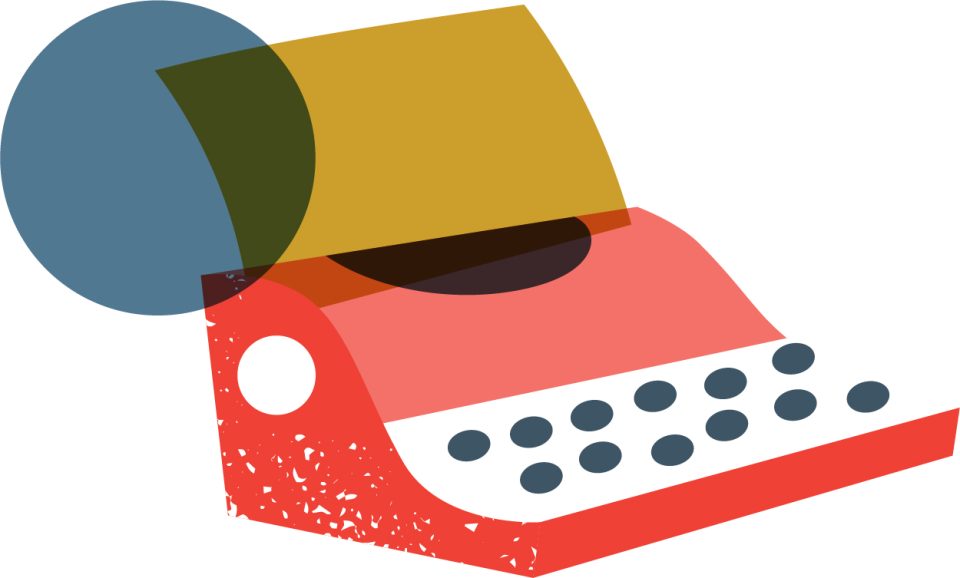
Contemporary Poetry
Just as the classics offer a vast array of styles, contemporary poetry offers a vast array of voices. If you don’t know where to start reading contemporary poems, try picking up the work of a recent poet laureate.
A poet laureate is someone officially chosen by a government or other organization to promote poetry and its role in society. In the United States, we have national poets laureate as well as state and local poets laureate.
The U.S. Poet Laureate position officially began in 1985, and our current U.S. Poet Laureate is Ada Limón, who will be participating in the 2023 Get Lit! events.
Recent U.S. Poets Laureate include Joy Harjo, Tracy K. Smith, Juan Felipe Herrera, and Philip Levine.
The first U.S. National Youth Poet Laureate designation was awarded to Amanda Gorman in 2017, and our current National Youth Poet Laureate is Alyssa Gaines.
Our current Washington state Poet Laureate is Rena Priest. Past Washington state Poets Laureate include Claudia Castro Luna and Samuel Green.
Did you know Spokane has its own poet laureate too? It’s true! Recent Spokane Poets Laureate include Thomas Caraway, Laura Read, Mark Anderson, and Chris Cook.
In fact, Spokane offers a robust literary community. You can explore several more published Spokane-area poets in our Inland Northwest Collection.
For more reading options, browse our nonfiction shelves with the following call numbers: 811 for American poetry, 821 for British poetry, 831 for German poetry, 841 for French poetry, 851 for Italian poetry, 861 for Spanish poetry, 871 for Latin poetry, 881-884 for Classical Greek poetry, and the 890s for poetry from around the world.
To read and listen to poetry on mobile devices and eReaders, check out the OverDrive booklist Poetry – Distillations, Epics, Free Verse & Rhymes, available on the Libby app.

Guides on How to Write Poetry
One of the best guides for writing poetry is simply to read poetry closely and study how the writers achieve what feels effective to you. Ask yourself questions like:
- Does the poem have line breaks? If so, are they end-stopped or enjambed?
- Does the poem rhyme and/or hold a steady rhythm?
- What type of imagery appears? Is it specific? Can you picture it?
- What types of verbs are used?
- How do the words sound when you read them out loud?
For how-to guides, browse these books and these books found on our shelves.
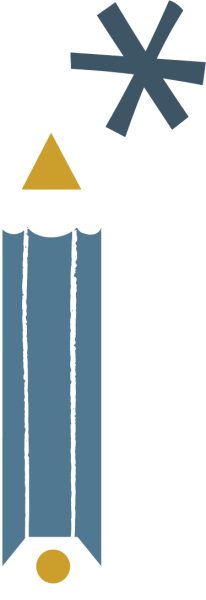
Getting Published
Before choosing to submit poems for publication, it’s important to know that publishing poetry is not a way to make a living wage. It’s a labor of love.
Fiction and nonfiction writers typically work with agents and can even get advances for ideas they pitch that haven’t been written yet. But poets need their work to be completed before beginning the submission process. Poets typically also need to slog through the business of finding a publisher on their own.
The best way to do this is to read poetry journals and literary magazines—a lot of them. This way you’ll not only discover what types of poems are being published but also which publications print the style or tone of poetry you write.
Once you’ve whittled down a list of publications that match your writing style, make sure to follow their submission rules.
Reliable resources for finding journals and magazines that accept poetry submissions include:
- Poet’s Market
- Poets & Writers
- Submittable (free account creation required)
- Duotrope (subscription required after free trial)
- New Pages
If you have a full manuscript of poems ready to go, self-publishing offers another option. Smashwords (Draft2Digital) can help you self-publish an eBook, print book, or audio book.
If you’d like more guidance before deciding how to publish and your SCLD library card starts with “209,” you can take a free “Publish and Sell Your E-Books” class through Gale Courses in our Digital Library.
Another option, handmade zines are an old-school form of self-publishing that’s fun, immediately rewarding, and economical. (I spent a good portion of the 1990s making and distributing zines.) You can give copies of completed poetry zines to family and friends, leave copies in Little Free Libraries, and/or ask permission to distribute copies at local cafés and businesses.
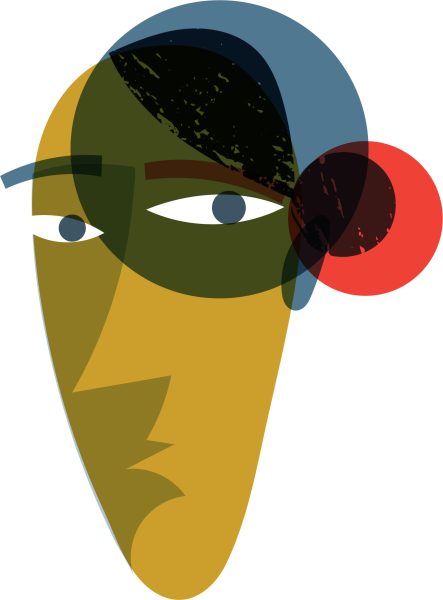
Final Thoughts
No matter what your relationship is to poetry, April is a great time to explore it and celebrate it. I encourage you to read and share poems, start (or restart) a writing practice, and submit your poetry for publication.
Also share your celebrations on social media by tagging your posts with #NationalPoetryMonth.
Happy reading, writing, and connecting with poetry!
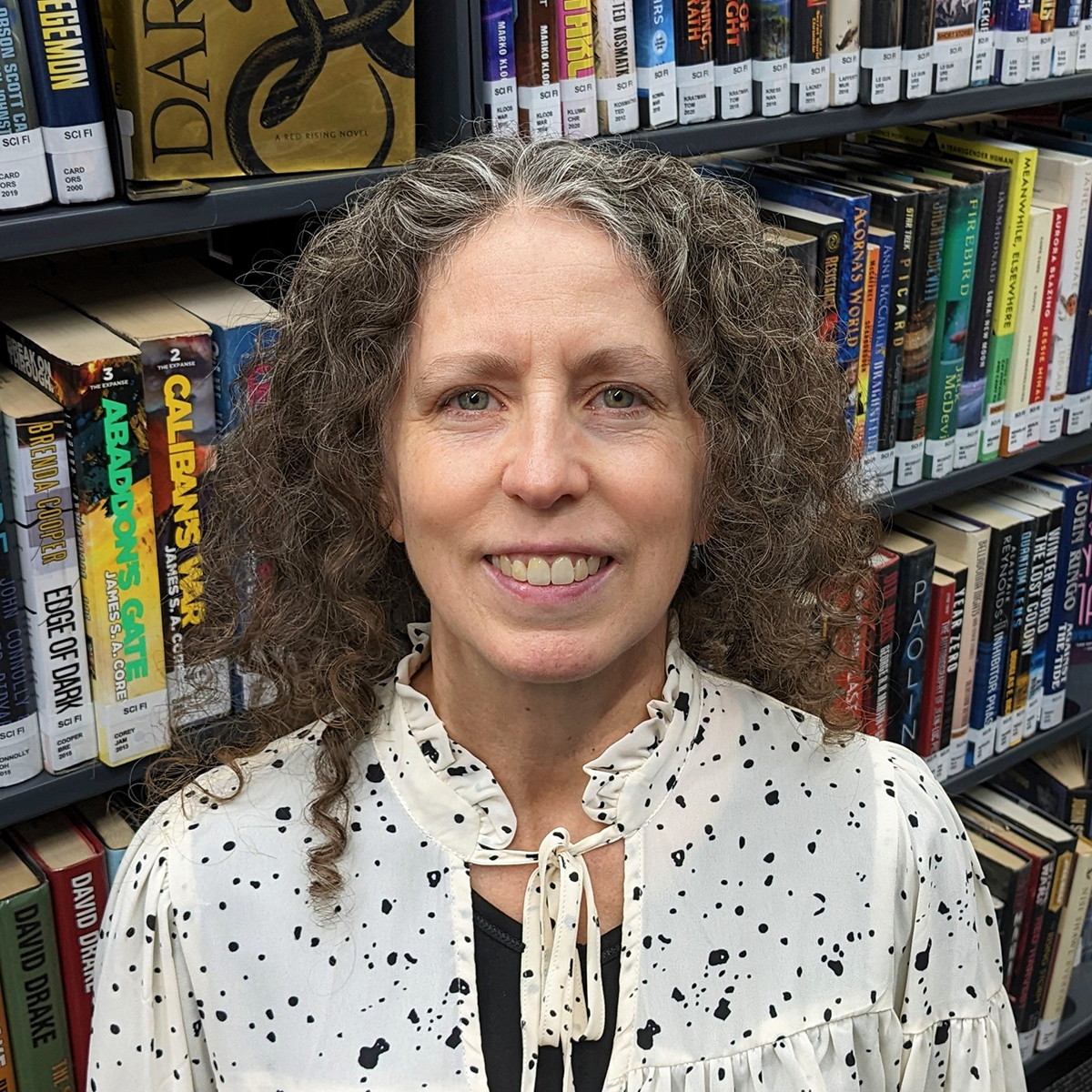
Melissa Rhoades fulfilled a childhood dream when she started her first library position in 2016. As a Public Services Specialist at Spokane County Library District, she presents weekly storytimes, hosts programs, works on the 3D printing team, writes on the blog team, assists with collection maintenance, and tends the reference desk, among other tasks. Off the clock, she enjoys exploring the arts and the natural beauty of the Pacific Northwest.
Tags: National Poetry Month, poetry, publishing, reading, writing
